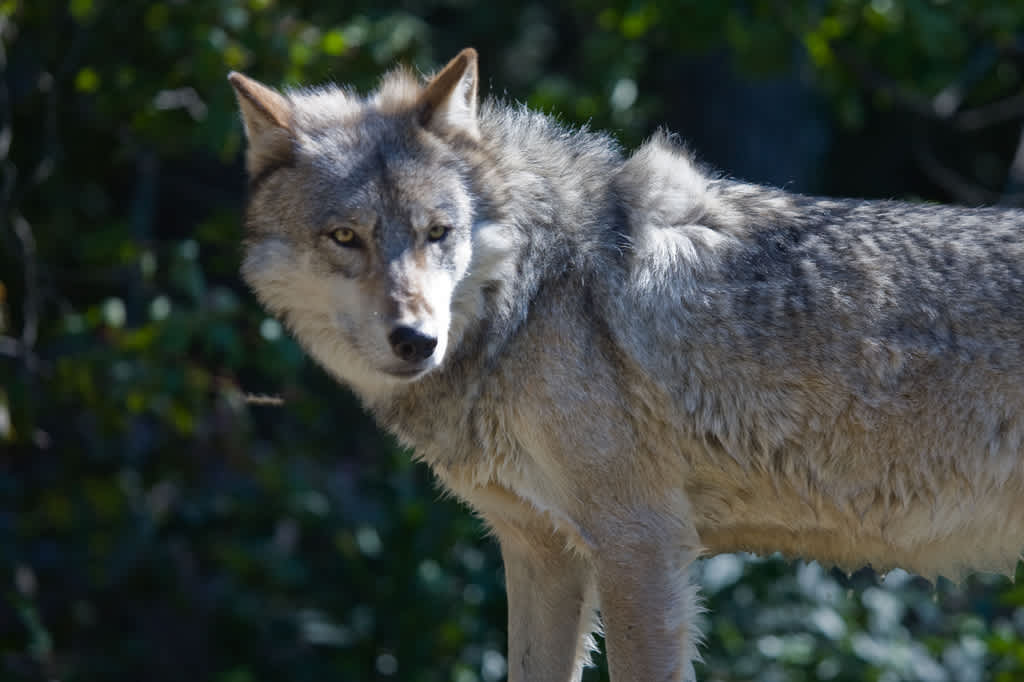Scientists Ask Federal Government to Delist Great Lakes Wolves
OutdoorHub Reporters 11.23.15

Last week 26 wildlife management professionals and scientists sent a joint letter to the Department of the Interior, urging the agency to reconsider federal protections for the gray wolf in Michigan, Minnesota, and Wisconsin. According to the scientists, the species is no longer endangered in the region and does not require further protection under the Endangered Species Act (ESA).
Many of the experts previously argued for protecting the wolves in the past, making the letter especially significant.
“The undersigned strongly believe that it is in the best interests of gray wolf conservation and for the integrity of the ESA for wolves to be delisted in the western Great Lakes states where biological recovery has occurred and where adequate regulatory mechanisms are in place to manage the species,” the letter stated. “We believe that failure to delist wolves in these states is counterproductive to wolf conservation there and elsewhere where suitable habitat may exist.”
The list of scientists included on the letter includes former US Fish and Wildlife Service (USFWS) biologists, university professors, experts on endangered species, wolf researchers, and state wildlife managers.
Removing the species from the list has been a highly controversial issue and advocates on both sides are used to the wolves’ legal status being moved back and forth. Gray wolves have been removed from the list and put back on no less than three times—the most recent was when a federal judge restored the species back to federal protections in 2014.
“In 1974 when wolves were originally protected south of Canada, only about 750 wolves occurred in northeastern Minnesota. Today, wolves are found throughout northern portions of Minnesota, Michigan and Wisconsin with a midwinter (2014) count of [more than] 3,700,” stated the letter, which was addressed to Secretary of the Interior Sally Jewell and USFWS director Dan Ashe.
The scientists explained that there are few areas in the region and surrounding states where the wolves could survive on natural prey. If the wolves are to expand, then residents may expect depredation on livestock and pets, which will only hurt wolf recovery efforts elsewhere.
“We believe it is highly unlikely that these states will allow their wolf populations to decline to the point where wolves are again threatened or endangered,” the letter stated. “All 3 states have set minimum population goals that are much higher than the levels established for delisting in recovery plans and the USFWS has established post-delisting monitoring criteria for the states to follow.”
On the opposite side, animal advocacy groups such as the Humane Society of the United States have continuously pushed for the wolves to stay on the list. The group has stated that it would accept the wolf being downgraded from endangered to threatened, which would allow lethal culls of nuisance animals but not a general hunting season.
Wildlife managers and lawmakers in the Great Lakes states are currently working to remove wolves from the list entirely.

